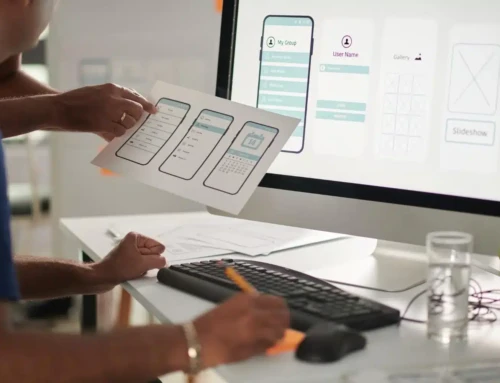There’s been a lot of chatter about plans for Google to work with the Federal Government to build a website designed to help fight the Coronavirus outbreak.
With the COVID-19 condition gripping the nation, causing economic volatility, and sending millions of people into self-quarantine, all of society is looking for something to help make the situation a little bit better.
Verily, Google’s sister company has launched a new website that’s designed to help screen those who think they’ve contracted COVID-19. This reality confirms some buzz that’s been generated around the topic. The site is supposed to be able to point potential contractors of COVID-19 to testing sites. However, you might not be able to use it just yet.
Verily is a tech company focused on health specifically. Alphabet, the organization’s parent company, also owns Google. The website was launched on Sunday night for people living near San Mateo County and Santa Clara County of San Francisco.
Once Monday morning rolled around, the screening website claimed that it wasn’t currently able to schedule any more appointments. According to Verily, the site is only meant to fulfill the role of “clinical oversight.” The actual tests are conducted by different organizations and healthcare providers.
However, some users won’t even be able to make it that far. If you answer “yes” to questions about exhibiting severe symptoms, the site will take you to a page saying that in-person testing for the COVID-19 condition through the site isn’t the best fit. Verily’s site will then suggest the user seek professional medical attention. According to a spokesperson for Verily, the site isn’t capable to offer medical attention.
A vast majority of people who catch the novel coronavirus only exhibit moderate or mild symptoms like a cough or fever. However, severe illnesses, like pneumonia, can also develop for older individuals and those who suffer from pre-existing conditions.
Thus far, it seems that the vast majority of cases end up with the patient making a complete recovery from the virus. The World Health Organization reports that people who contract a mild illness tend to recover in around 14 days. Those that have a more severe illness from the virus might take 3 to 6 weeks to fully recover.
Mainland China, the area to first deal with the virus on a large scale, originally saw more than 80,000 diagnoses. Of those, over 58,000 have recovered thus far. These numbers offer some promising hope to millions of people around the world who are currently being impacted by the virus and the stringent measures being taken by governments.
Verily’s screening site is being managed through Project Baseline, a massive initiative designed to collect people’s health information in order to gather more data on community health overall. Verily rushed to launch the screening site when President Donald Trump offered a misleading and exaggerated explanation of the project during a meeting. His announcements came before the project was ever announced by Verily.
Over the weekend, Verily publicly revealed the site’s screening process. They mentioned that the screening will start in some of the highest risk areas of the Bay Area. If the testing is possible to extend widely, the company hopes to offer services in more places.
A spokesperson for the company cleared up some confusion about capacity issues. Within the first days of the site’s maiden voyage, the company expects limited appointment availability while operations get underway. She also mentioned that the capacity for testing is expected to increase within the next few weeks or so.
One specific portion of the screening process is raising concerns among the public. Verily requests that users create an account through Google or connect an existing account. This is done before the screening begins. Verily claims that this request is to help send results of the test and to schedule appointments. They also say that the information collected on the site won’t connect to Google’s various services without permission from the user.
This portion of the screening process still might cause many to hesitate due to the existing privacy concerns about the amount of information major tech companies have on their users.




